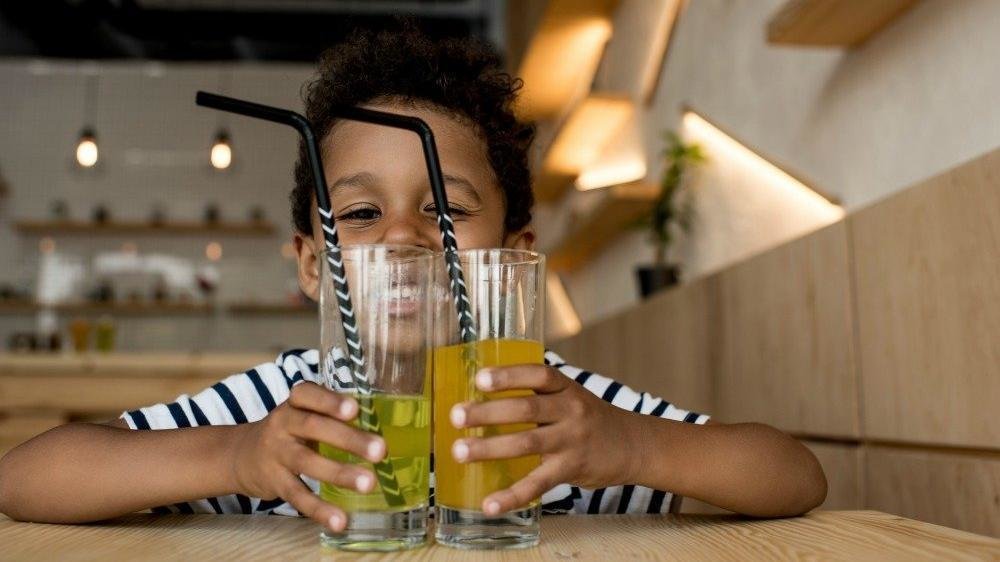
Consumer Reports' latest study on fruit juice has determined that many of the most popular fruit juices sold throughout the United States–including those marketed specificially to children–contain potentially dangerous levels of heavy metals including arsenic, cadmium, and lead. The research company tested 45 different storebought juices–including apple, grape, pear and juice blend varieties–and nearly half of all of the juices tested contained elevated levels of heavy metals.
More from MamásLatinas: Dangerous heavy metals have been found in nearly all commercial baby food, here's what you can do
Many parents offer their children fruit juices as an alternative to artificially flavored beverages and sodas, or even as a something of a nutritional supplement–believing that the juice will give kids a boost of vitamins and minerals–it's actually full of concentrated amounts of sugar and lacks the fiber of fresh fruit. In most cases, water or milk are much healthier alternatives in general.
But in light of Consumer Reports' most recent findings, it's especially important that parents fully educate themselves on the risk and benefits of giving their kids juice. Commercial juices have repeatedly been tested for these dangerous metals–CR's report was a follow-up to one it conducted back in 2011–and they repeatedly come back with concerning levels. Keep reading to find out why this information is worrisome, which juices are the worst offenders and what you can do about it.
Chronic exposure to heavy metals is the biggest concern.
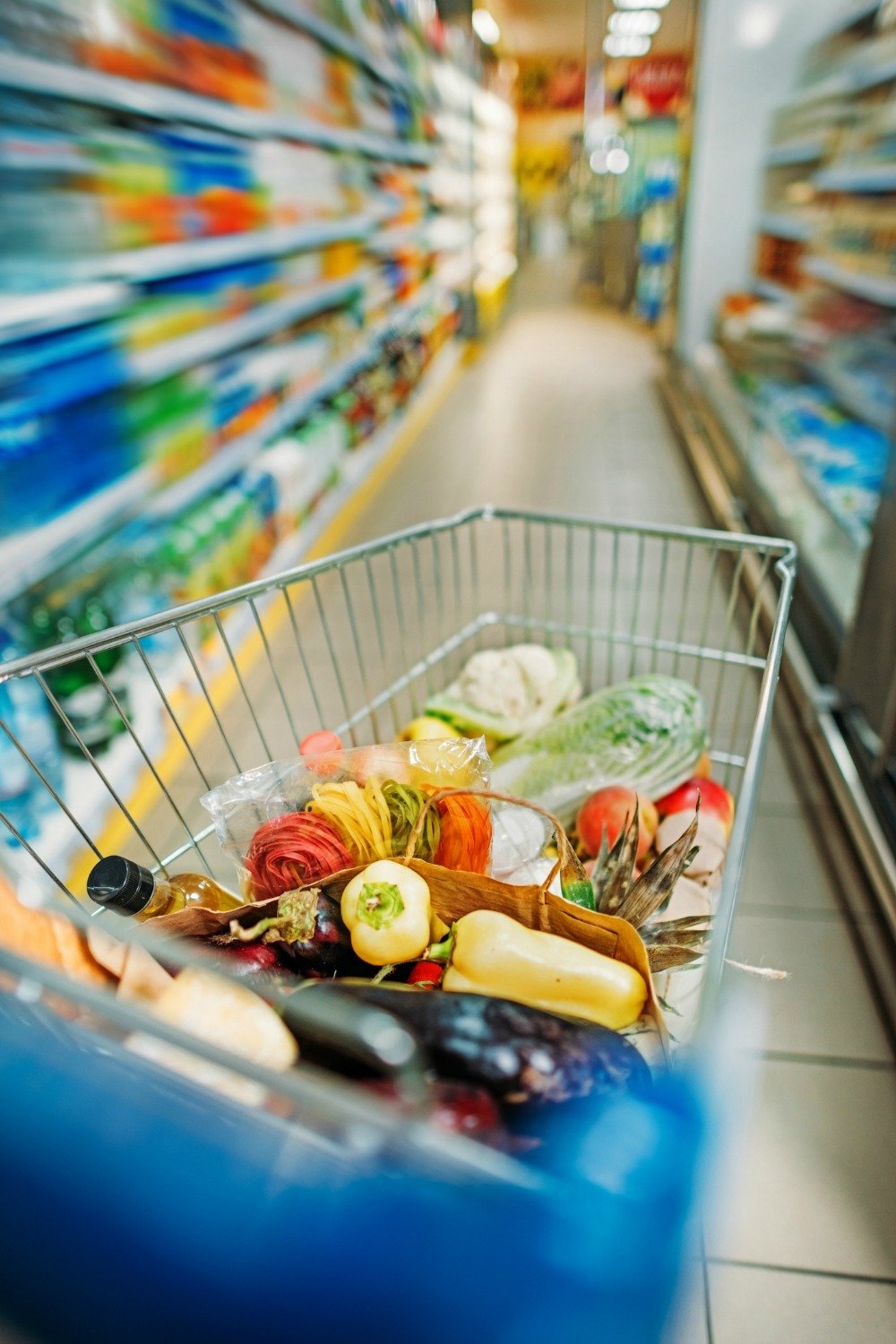
"In the course of a lifetime, the average person will come into contact with these metals many times, from many sources," says Tunde Akinleye, a chemist in Consumer Reports' Food Safety division. "We're exposed to these metals so frequently during our lives that it's vital to limit exposures early on," said the lead tester.
Because heavy metals can be found in many foods and in the environment, there is concern of a compounded effect over time that could lead to serious health issues.
The potential health risks are serious.

When consumed in large amounts, health issues such as lowered IQ and behavioral problems caused by over exposure to heavy metals may become evident in children. An even bigger concern though is what will manifest down the line, after prolonged exposure. Type 2 diabetes, cancer, heart disease, fertility issues and high blood pressure can all be connected to exposure to high levels of metals like lead, cadmium, arsenic and mercury.
Moderation may not be enough.

Everything in moderation, right? Well, maybe not when it comes to juice. It's important to note that every single one of the 45 products tested in this study contained measurable levels of at least one of the heavy metals. And 47% of the products had high levels of cadmium, inorganic arsenic, and lead. Seven products could cause harm at half a cup per day and nine could cause harm at one cup or eight ounces per day. Five of the juice boxes/pouches tested could be harmful at just one serving per day.
Here are a few takeaways...

-Grape juice and juice blends (which often contain grape juice) consistently contain higher levels of heavy metals
-Organic juices and juices marketed specifically to children fared no better in the study than conventionally produced juices
-The FDA can set limits for how much of these metals are allowed in a product, but as of right now the limits for some metals are only "proposed" and not law, while other limits are still considered to be too high by medical professionals and scientists
Finally, these are the worst offenders--including some that may surprise you.
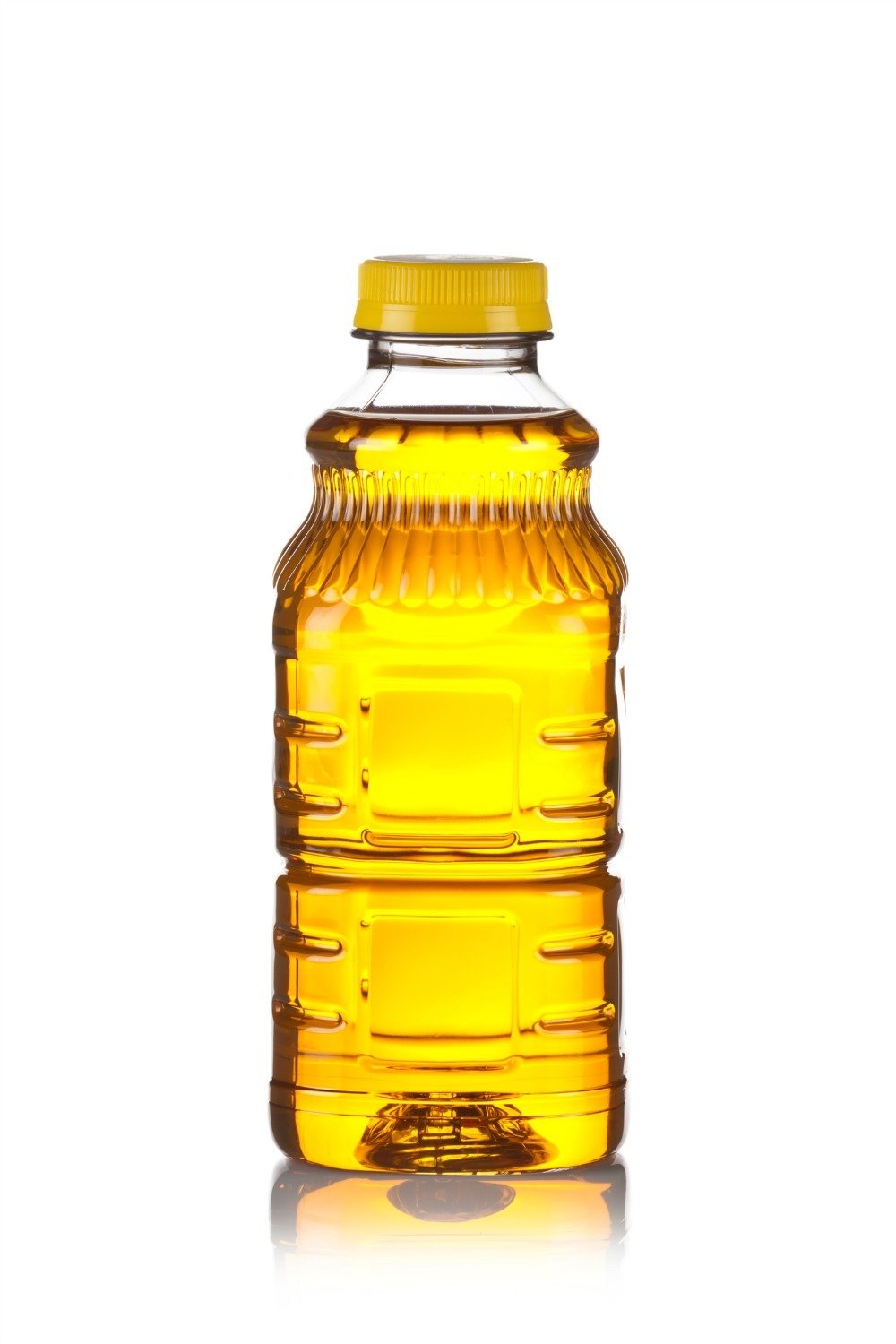
The juices listed here are the ones containing harmful amounts of heavy metals in just four ounces:
Trader Joe's Fresh Pressed Apple Juice, 100% Juice
365 Everyday Value (Whole Foods) Organic 100% Juice, Concord Grape
R.W. Knudsen Organic Just Concord Grape Juice
Welch's 100% Grape Juice, Concord Grape
Welch's 100% Grape Juice, White Grape
Great Value (Wal-Mart) 100% Juice, Cranberry Grape
Welch's 100% Juice with Antioxidant Superberry
These juice boxes and pouches are concerning at just one serving per day:
Trader Joe's Joe's Kids Apple Juice
Minute Maid 100% Apple Juice
Juicy Juice 100% Juice, Fruit Punch
Minute Maid 100% Juice, Fruit Punch
Mott's 100% Juice, Apple White Grape
See the full report to get all the details on the juices that are the worst offenders.
There are some less risky options.
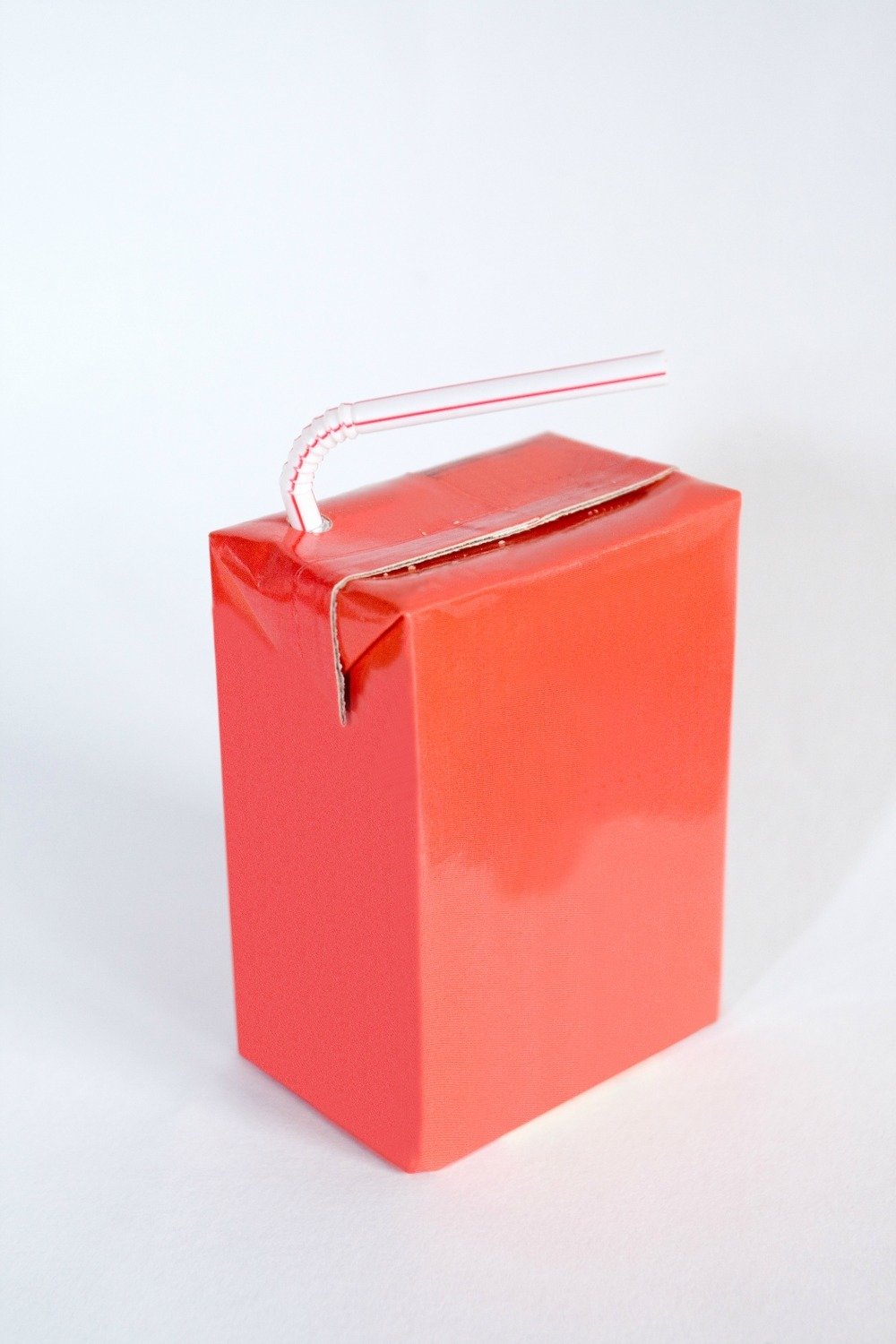
While heavy metals were found in all of the 45 products tested, some did fare better than others.
These are some juices you could offer occasionally:
365 Everyday Value (Whole Foods) Organic Apple Juice, 100% Juice
Market Pantry (Target) 100% Juice, Apple
Mott's 100% Juice Apple, Original
Goya Pear Nectar
Ocean Spray Cran-Grape
These single-serve juices are better alternatives:
Capri-Sun 100% Juice, Apple
Capri-Sun 100% Juice, Fruit Punch
Juicy Juice Organics 100% Juice, Apple
Honest Kids Organic Juice Drink, Goodness Grape
Good2Grow 100% Juice, Fruit Punch
See the full report from Consumer Reports on the juices with the most heavy metals.
What can you can do as a parent?
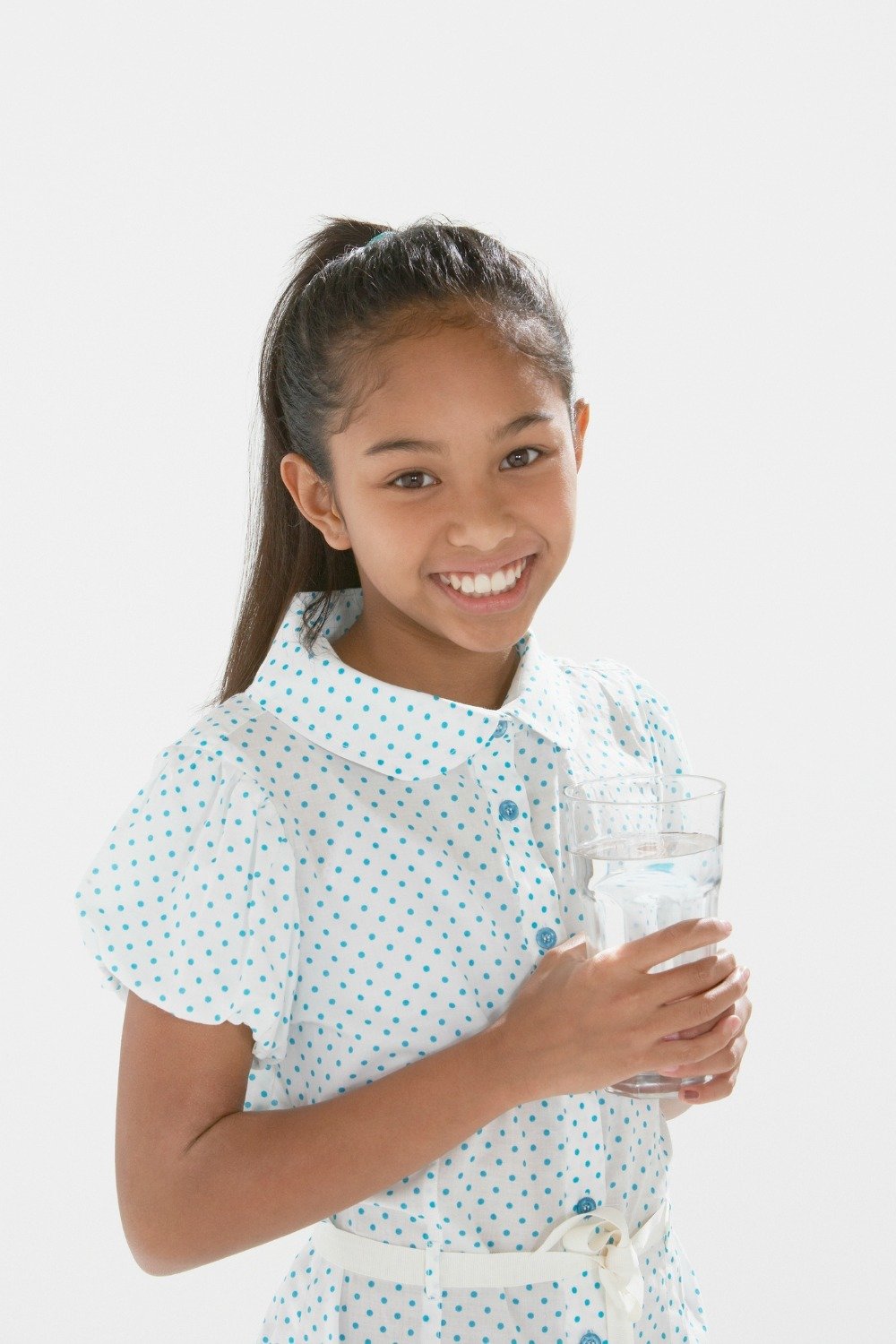
The most obvious course of action for parents is to cut out fruit juices altogether. Water and milk are much better alternatives than even the best commercial juices. However, if you're not ready to cut juice out of your kid's diet completely, it's important to limit consumption. The American Academy of Pediatrics recommends not serving juice to babies under the age of 1 and limiting amounts as follows: four ounces or less per day for 1- to 3-year-olds, six ounces per day for 4- to 6-year-olds and no more than eight ounces per day for children 7 and older.
You could also consider reserving juice for special occasions and serving fresh fruit smoothies and/or decaffeinated herbal tea as more healthful and safe options.




